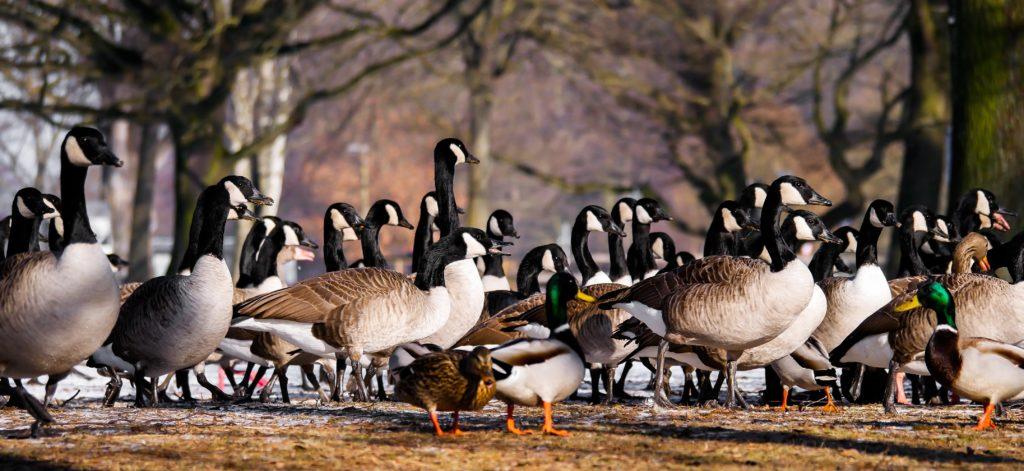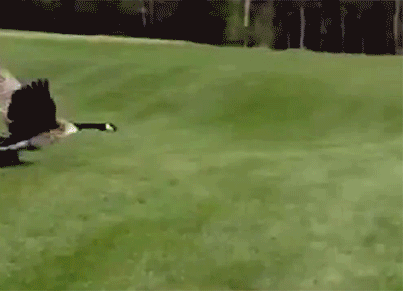Springtime brings with it a rebirth in nature – trees and flowers bursting to life. Adorable baby bunnies and chicks abound. Oh, and then there’s the goose! For many people, geese (and we might as well throw swans in here too) might be a not-so-adorable or welcomed creature during this time of year.

If you have ever walked through one of the many Atlanta parks or played golf on a local course, you may have noticed the abundance of Canada Geese. There are two types of Canada Geese that inhabit the Atlanta area; migratory geese and resident geese. With their fondness for grass, our mild winters, and numerous lakes and ponds, it seems they all have chosen to make Atlanta their home. While the migratory geese only come down for the winter, the resident geese are here to stay.

Whether you love them or hate them, it’s important to know how to coexist with them. As with so many species, springtime is mating season. In late February through March geese begin to choose their mates and stake out their nesting territory. The females lay their eggs anywhere between mid-March into May. Gestation lasts about 25-30 days. During this period the males becomes very territorial. They will go to extraordinary lengths to protect their nest.
There are many natural predators that set their sights on geese and their eggs. Geese and swans have a natural instinct to protect their nest. Throughout the spring, with a heightened sense of protection engaged, they become overly aggressive. This time of year, you may want to be overly cautious and give these water fowl some extra space when crossing their path, especially in public parks. Geese and swans that are used to being fed no longer fear humans and in turn will be more aggressive when they feel threatened.
Signs that a goose or swan is protecting its territory include:
- A warning call
- Spreading its wings
- Hissing sounds

While the best way to avoid being attacked is to stay clear, if you are approached by an aggressive bird, here’s how to handle the situation:
- Do not turn your back to it
- Back away slowly
- Maintaine eye contact (do not squint or close your eyes)
- Do not yell or wave your arms at the goose as a way to get them to back down – it will not work
- Do not run away, they will attack
Both species are capable of causing injury to humans. They have been known to cause broken bones and head injuries. The most common injury, though, is the emotional stress suffered when someone is chased by an overly protective bird. Don’t let the fact that “swan” is in the name of a beautiful ballet fool you; they can be nasty birds!


